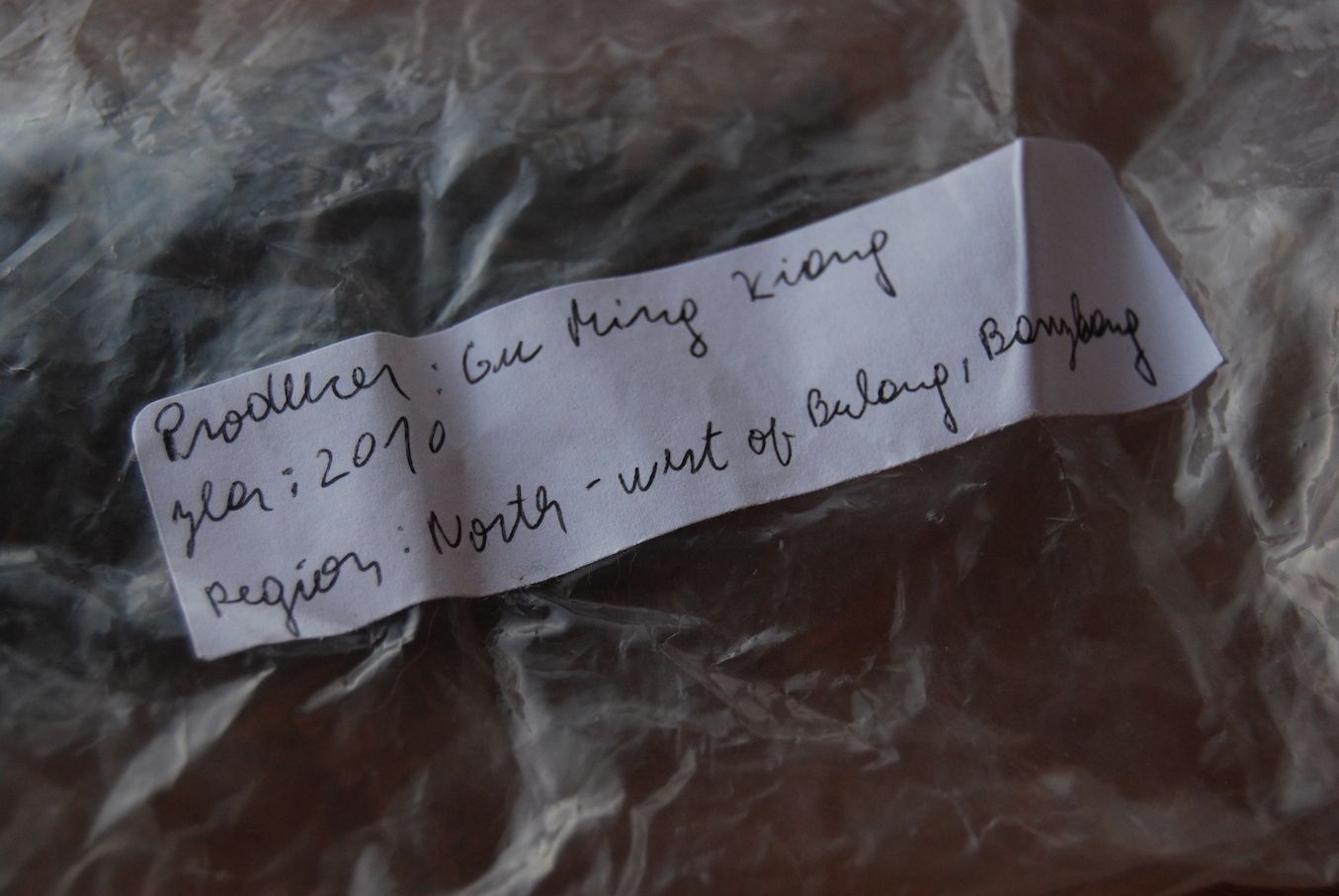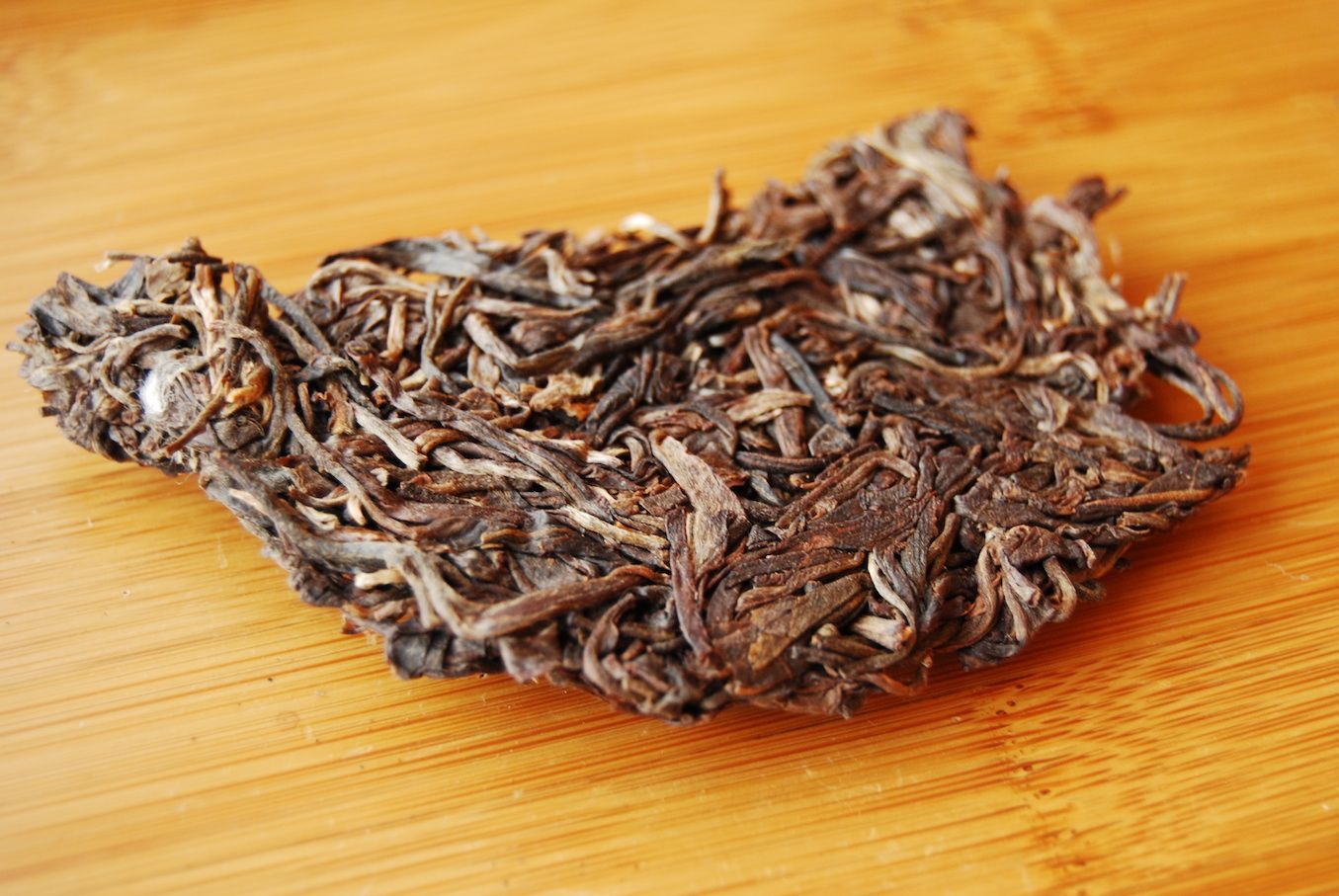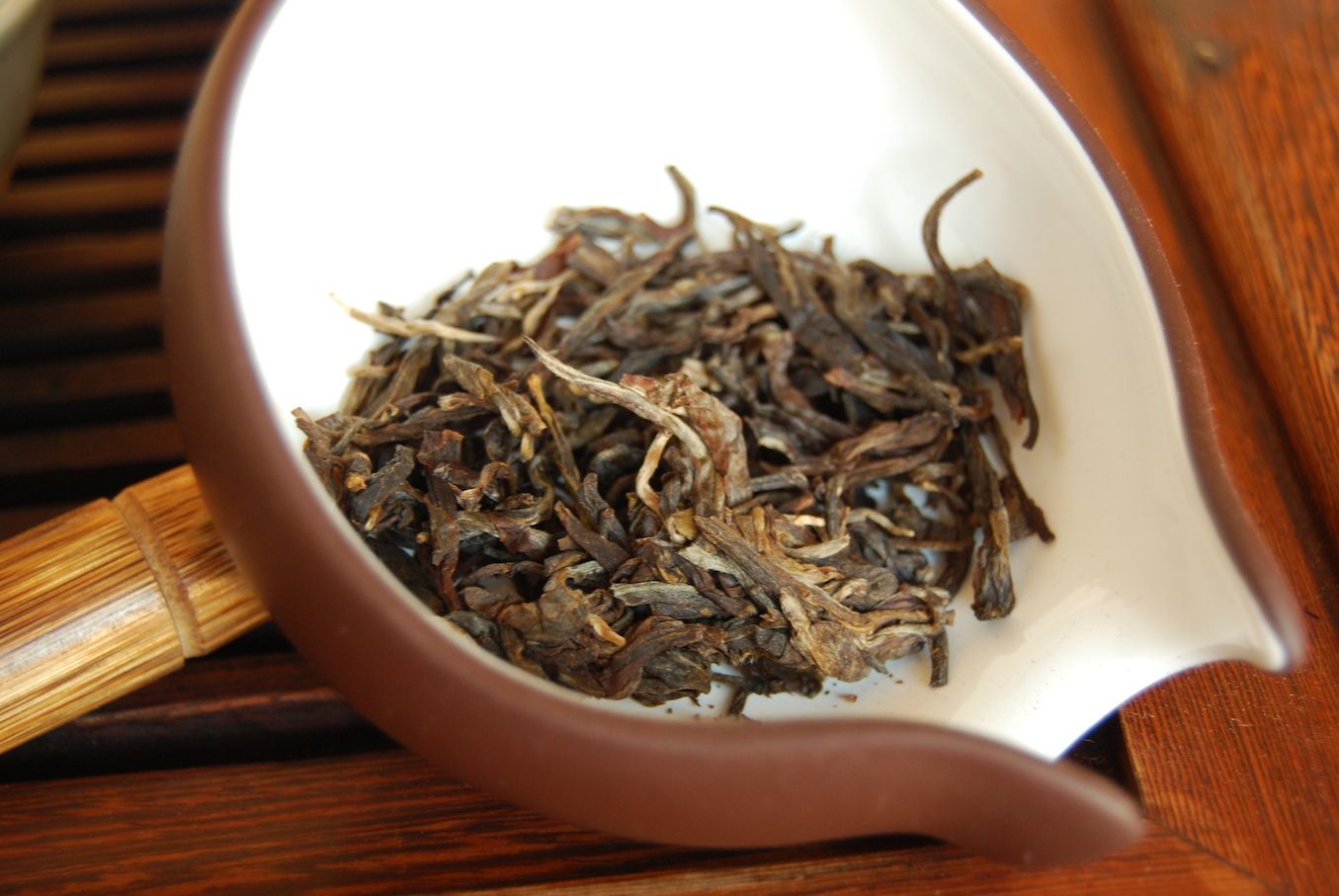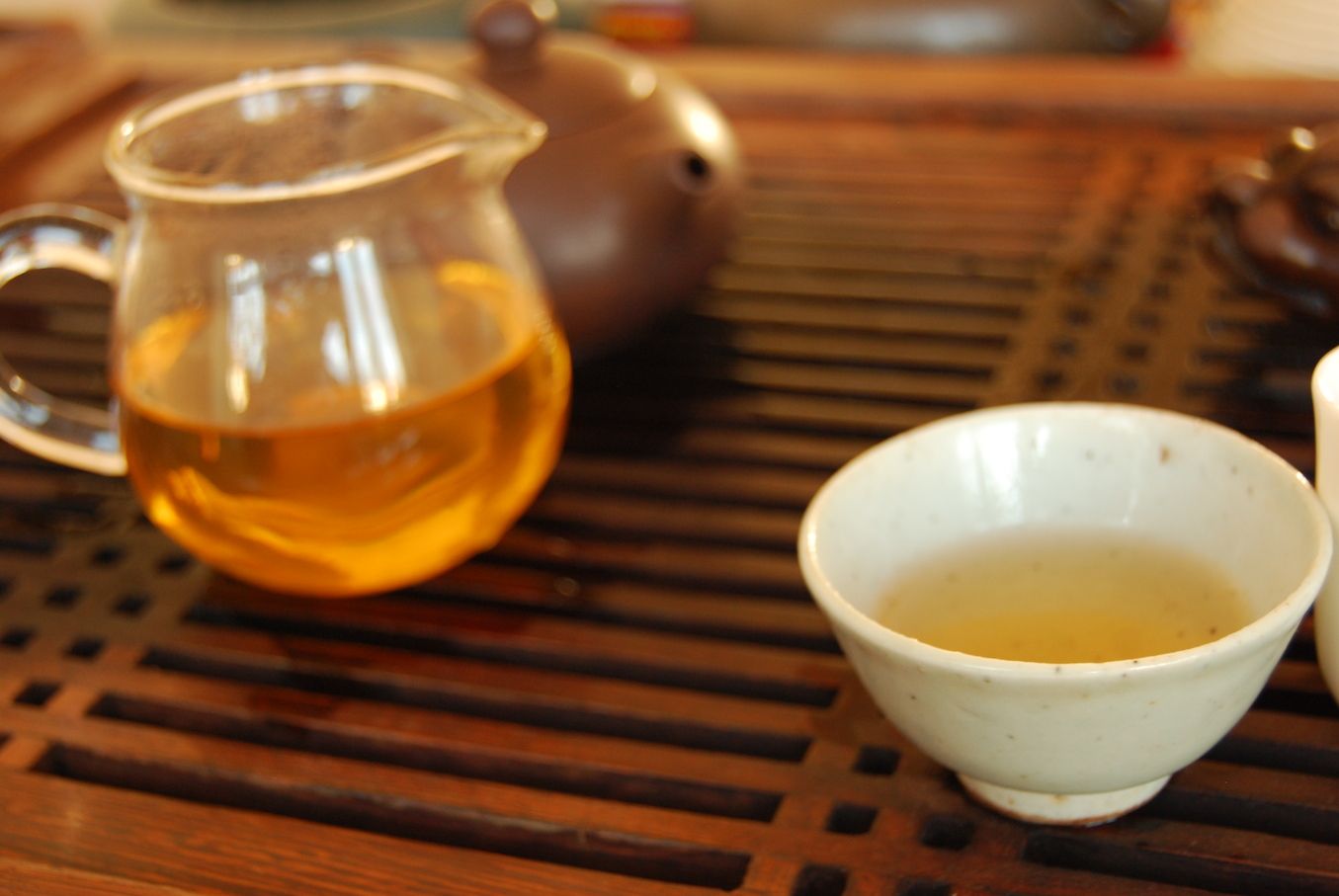Swapping tea with friends is a fine way to get taken by surprise. Today's session with a 2010 Gumingxiang is just such an exercise in unexpected, enjoyable pugilism. Thanks to ME of Argentina for this excellent session.
Although every tea is special in the Zen sense of living-everything-for-the-first-time, this session feels particularly significant. It has been some long weeks, at the time of writing, since I managed to reach my tea-table, and there is a layer of dust over everything that needs to be removed before the session begins. I use my bamboo brush to wipe away the residue. Already, I am in the mood for a serious tea.
The scent of roasting dust rises from my hot-plate, beneath the tetsubin.
Gumingxiang is not a company with which I have any past experience. A quick Google search reveals that Yunnan Sourcing sells three cakes from this factory, and they are all from 2010. In order of increasing price, they are a Banpen, a Xinbanzhang, and a "Laobanzhang" ($40, $110, and $190, respectively). The hand-written labels notes that the leaves come from north-west of Banzhang.
The maocha looks good, as you might agree from the photographs. The leaves have the colour of a few years of ageing, and are mostly unbroken. Their scent, appropriately enough, is "chenxiang" [aged scent] - given that the name of the company, Gumingxiang, is approximately "ancient tea scent". The aroma also carries the fruity, complex, low sweetness of its region, and I consequently hope for good things.
This is dry (in the sense of a wine), husky, and instantly recognisable from its regional characteristics. The flavour is, for want of a better word, stunning: it is full-frontal tangy sweetness, with a fine undercurrent of kuwei [good bitterness]. This is by far the best tea that I have had in some time - but this must be taken in light of the fact that I have not had a real session for an absolute age.
This is dry (in the sense of a wine), husky, and instantly recognisable from its regional characteristics. The flavour is, for want of a better word, stunning: it is full-frontal tangy sweetness, with a fine undercurrent of kuwei [good bitterness]. This is by far the best tea that I have had in some time - but this must be taken in light of the fact that I have not had a real session for an absolute age.
There is fullness, complexity, challenge, and aggressive charm. It is a fantastic tea with which to return to the table. This is not an "easy" drink: it rewards care in both preparation and consumption. I appreciate its heavy feeling that dominates the mouth, with a superb bitterness that exists tantalisingly close to the threshold that marks "unpleasantness", but which always remains on the side of "significantly enjoyable".
Almost nasty, but not quite - this is good pu'ercha.





2 comments:
A tea session after a longer break can be particularly delightful
Tea always tastes better after a week or so away. :)
Toodlepip,
Hobbes
Post a Comment